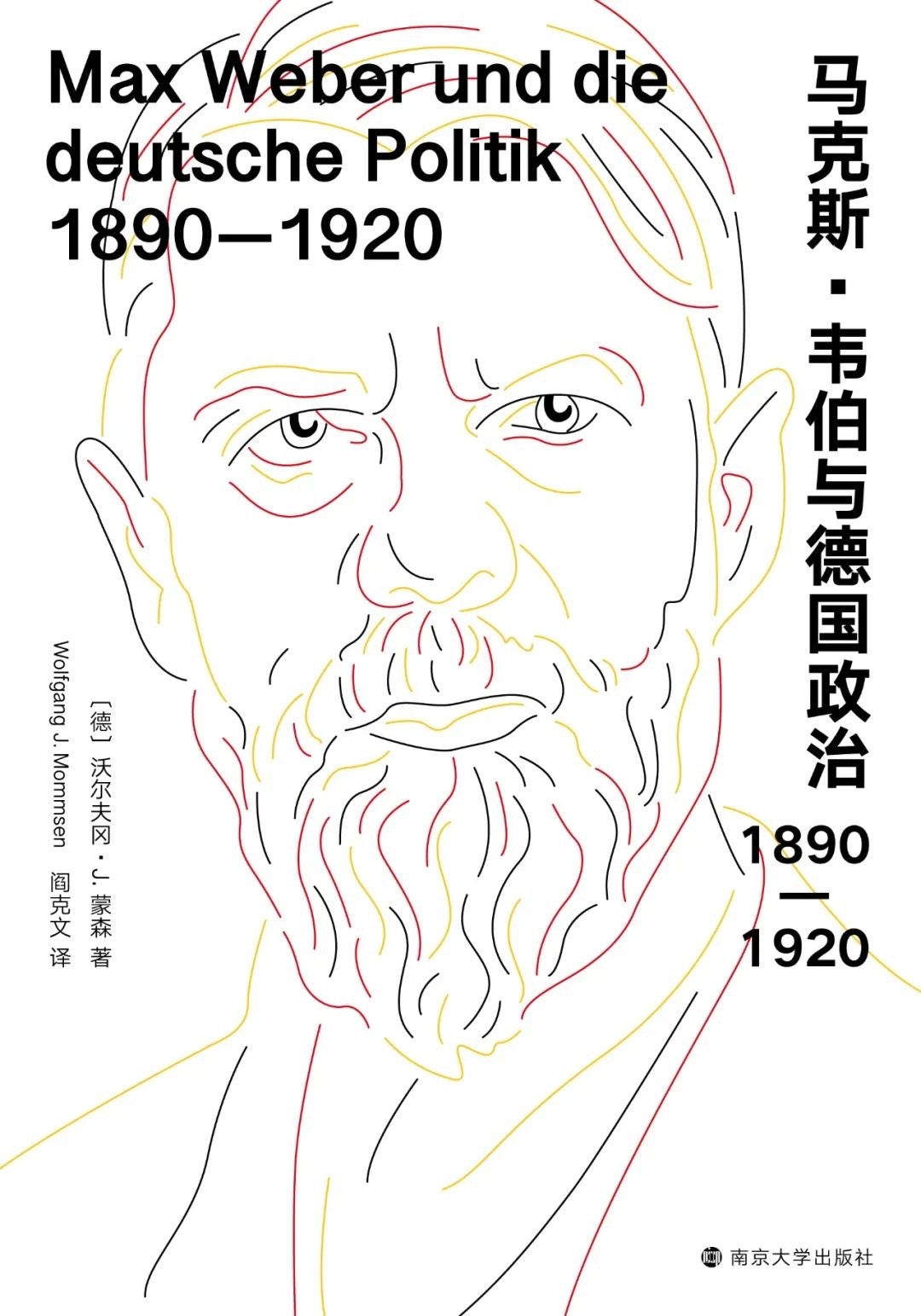1
/
of
1
Max Weber and German Politics: 1890–1920
Max Weber and German Politics: 1890–1920
[German] Wolfgang J. Mommsen Yan Kewen 译
Regular price
$28.99 USD
Regular price
$28.99 USD
Sale price
$28.99 USD
Unit price
/
per
Low stock
Couldn't load pickup availability
About Book
About Book
Max Weber and Die Deutsche Politik 1890—1920
◆ In late 19th century Germany, the economy was booming but the politics was conservative ◆ In post-World War I Germany, the anxiety of national revival masked the fragility of the Weimar Constitution ◆ Discovering a Weber who was wavering between imperialism, nationalism and liberalism...【Content Introduction】
He fiercely criticized the conservative social policies of Bismarck and the Kaiser, but was even more disappointed by the political weakness of the bourgeoisie. During World War I, he steadily promoted the realization of a "decent peace" for the benefit of Germany, but was ruined by selfish political leaders. During the Weimar Constitution, he hoped that a charismatic authoritarian leader would restore the great power's glory, but he did not foresee the rise of Nazism...
The myth they created in the 1920s of Weber as a natural leader who was radically neglected is a fundamentally inadequate portrait of a great man… My aim is to portray Weber’s political personality based on a careful analysis of the primary sources, not as a one-sided ideological interpretation but as an attempt to portray Weber in all his complexity, including his internal contradictions and ambiguities.
—Wolfgang J. Mommsen Who knows how this spring will end? First politically, then financially. Everything has fallen into darkness, on the brink of an abyss. The most vexing thing is that this "monarchy" has this monarch! (In Berlin!) These gentlemen deserve to be spared. But what can be done? They have committed such shameful crimes that no one can help them. It's absurd.
—Max Weber...
【Recommended by scholars and media】
Although, due to the tricks of fate and circumstances, (Weber) did not enjoy a prominent position in politics, this did not diminish his qualities as an outstanding politician. His greatness was like a Raphael without hands, without achievements but with unlimited potential.
——The famous philosopher Karl Jaspers (Weber was) is one of the most influential figures ever to appear on the academic stage.
—Joseph Schumpeter, the famous economist Weber was one of the last of the polymaths.
—Sociologist Lewis A. Coser
Wolfgang Mommsen provides a detailed reconstruction of Max Weber's political views... Although Mommsen's unconventional ideas have caused great controversy, his thorough excavation of the academic historical source is undeniable.
——American Journal of Sociology
The value of Mommsen's book lies not in the rediscovery of many important facts, but in the careful revision of scattered documents, the systematic analysis, and the outstanding and incisive criticism of Weber from both a democratic and anti-nationalist perspective.
—Historian Klaus Epstein
Among the vast amount of secondary literature on Weber, the most important one that seriously studies Weber's "Political Man" and is therefore a milestone is this classic work by Mommsen.
——Famous scholar Qian Yongxiang...
【Editor's Recommendation】
1. The author of this book, Wolfgang Mommsen, is a world-renowned German historian of the 20th century. He is renowned for his research on British and German history, and is a leading scholar of Weber's thought. Mommsen was born into a family of historians. His great-grandfather, Theodor Mommsen, won the Nobel Prize in Literature in 1902 for his History of Rome, and his father, Wilhelm Mommsen, was also a renowned historian.
2. The German edition of this book caused a huge stir in the academic community upon its publication. Mommsen's highly controversial interpretation of Weber initially attracted sharp criticism, but later gained widespread acclaim. Many scholars praised Mommsen for "rediscovering many important facts."
3. This book is a comprehensive biography of Weber and an essential reference for understanding his life and thought. Unlike most Weber biographies, which tend to deify him, this book aims to portray Weber's political personality based on a careful analysis of primary sources. Rather than offering a one-sided ideological interpretation, it strives to depict Weber in all his complexity, including his inherent contradictions and ambiguities. In this unique biography, readers will discover a new Weber, navigating the ambiguities between imperialism, nationalism, and liberalism.
4. This is a biography of Weber, but also a history of German politics, informed by well-documented historical data and powerful arguments. The book begins with economically ascendant but politically conservative Germany in the late 19th century, continuing to post-World War I Germany, where anxiety about national rejuvenation overshadowed the fragility of the Weimar constitution. Over the decades, numerous important German politicians, such as Bismarck, Wilhelm II, and Hugo Preuss, take turns to play their roles.
5. The translator of this book, Yan Kewen, is an expert in translating Max Weber's works into Chinese, having engaged in this work for nearly twenty years. He has contributed to over half of the Chinese translations of Weber's works currently available. Yan Kewen's translator's preface to this book elaborates on the book's historical value and Weber's political mission.
6. Renowned scholar and Weber expert Qian Yongxiang was invited to write an introduction for the Chinese edition. This introduction details Weber's historical and political context and the relevance of his ideas for China's current situation. It is both insightful and thought-provoking.
Publication Date
Publication Date
2023-01-01
Publisher
Publisher
南京大学出版社
Imprint
Imprint
Sanhui Books
Pages
Pages
610
ISBN
ISBN
9787305258671
share

